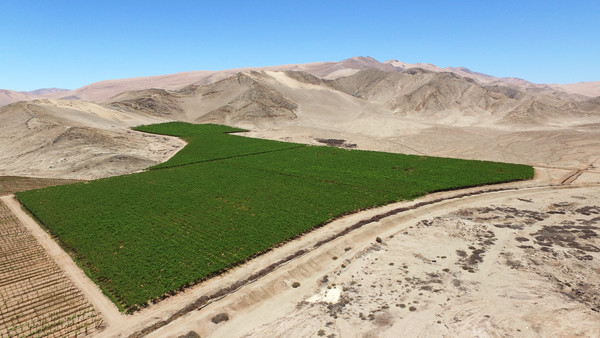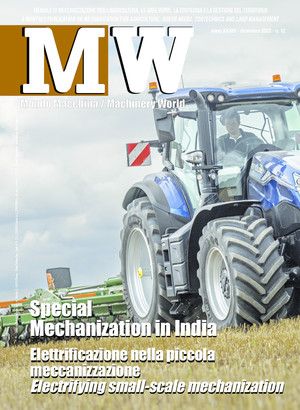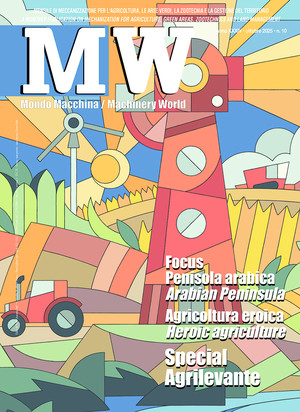
Renewable energy sources: projects signed by Itabia for energy
A recent survey conducted by the United Nations launches the alarm on the sharp increase of poverty and malnutrition afflicting hundreds of millions of people worldwide. Among the main causes of this problem, experts suggest that climate change is at the origin of many conflicts in volatile geo-political areas. Therefore, it is necessary to act at all levels to speed up the economy's decarbonization process towards sustainable systems of production and consumption
Climate change, in addition to causing environmental and economic damages that are evident and widely analyzed (hydrogeological disruption, floods, drought, and desertification), highlights an increasingly evident link to the spreading of conflicts, poverty, and deseases that represent a threat to humanity. As they say, “when it rains, it pours” or, in this case, it never rains on drylands; in fact, these effects severely affect the most vulnerable people in less advanced countries.
This year, September 11 (a date evoking in everyone the tragedy of New York’s Twin Towers) coincided with the publication of “The State of Food Security and Nutrition in the World” survey, made by the five United Nation’s agencies (FAO, IFAD, UNICEF, WFP, and WHO). These agencies actually deal with food security, agricultural development, child protection, and health.
The survey represents a global analysis, the intention of which is to stop hunger and all forms of malnutrition within 2030, by facing the problem as a political priority on an international level in the outlook of a sustainable development. Also, it stresses that hunger has started again to grow after 10 years of constant decrease, striking 815 million of people (11% of the world population), 520 million of which in Asia, 243 in Africa, 42 in South America and the Carribean countries.
A trend that is worrying and difficult to contain, considering that the 38 million undernourished people (in addition to the 2015 levels) are, in many aspects, due to the environmental crisis the world is going through. In fact, the UN survey notes that climate changes linked to a variation in the trend of rains and agricultural production are among the determinants of the increasing conflicts and economic crises. Therefore, “there is a need to implement and scale up interventions aimed at strengthening the resilience capacity, the adaptation of food systems and livelihoods of the populations in response to climatic variability and extreme weather events,” if we want to overcome this complex crisis within the set time limits. A positive signal was sent out by the step undertaken by the European energy policy. The trilogue (Parliament, Commission, and European Council) reached an agreement on the strategy to adopt to improve the use of renewable sources and energy efficiency within 2030. The FER set out the target of the 32% of energy final consumption (electricity, thermal energy, and means of transport), with a good increase compared to the target of the 20% set out for 2020. But the sector of energy is not the only issue to be dealt with. It is necessary to promote systems of production and consumption that are efficient and with a low environmental impact. In the last few years, Itabia (Italian Biomass Association) has taken the opportunity – at all levels – to focus on a more rational use of resources. The combination between efficiency and renewability, for years associated only with energy issues, moves today towards raw materials (in their wider meaning) through a further relaunch of biomass within the bioeconomy or the circular economy. In some ways, the international strategies regarding the issue of a sustainable development are evolving towards the principles on which the Association was founded 30 years ago. Itabia, as expressed in its Statute, “aims at promoting and spreading the development of the production, recovery, recycling, processing and productive use of biomass, a word that refers to a set of materials of organic origin likely to be exploited, and that include materials specially produced for this purpose, as well as by-products, civil, livestock and agro-industrial waste.
The above-mentioned targets are pursued in the context of environmental protection and improvement, as well as of social and economic development.”
In recent years, as the use of incentives promoted (although with some contradictions) the increase of bioenergy in Italy and Europe, Itabia has always operated in compliance with sustainability criteria. To this purpose, it has constantly recommended systemic approaches for the valorization of the entire biomass-energy chain, by putting the focus on resources and their territory of origin.
In the future, with the same approach, the effort will consist in drawing up some development lines for the so-called biobasedproducts (BBP) and their relevant industries (BBI). To this end, in December 2017, the ENABLING “Enhance New Approaches in Biobased Local Innovation Networks for Growth” was started within the H2020 Project (CSA, Coordination Support Action), where FederUncoma will take full responsibility of the administrative and Itabia of the technical and scientific coordination. The partnership is composed of 16 bodies representing 13 countries (Italy, Belgium, Norway, Ireland, Austria, Bulgaria, Great Britain, Holland, Greece, Czech Republic, Israel, France, and Germany). Within ENABLING, a series of actions aimed at facilitating bioeconomy’s development will be undertaken by working on maximizing the value of organic raw materials (residual or specially cultivated for this purpose) to be used in sectors with a high growth potential such as green chemistry, textile industry, automotive, nutraceuticals, and green building. Among the objectives of this project stands out the creation of a stakeholders’ network bringing together the agricultural sector (biomass producer) and industry (processor) to facilitate the reaching of sector agreements on the promising bioproducts’ market.








